National
PROC – The Uninvited Ovation of the notorious Waffen-SS at the HoC
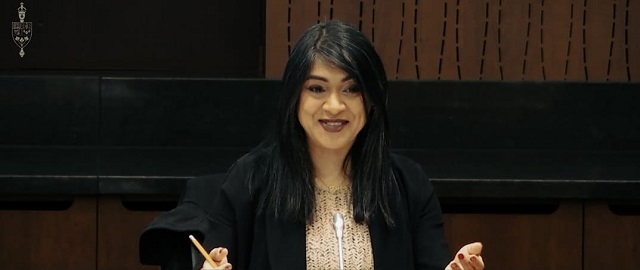
Liberal Waterloo MP, Bardish Chagger
From The Opposition News Network
|
|
Unmasking the Hunka Fiasco, A Tale of Evasion, Applause, and the Art of Political Cover-Up
Yesterday, at Meeting No. 111 of the PROC – the Standing Committee on Procedure and House Affairs – things got heated, to say the least. We witnessed yet another chapter in what can only be described as the Bloc/NDP/Liberal cover-up coalition’s ongoing saga. Let’s delve into the heart of this matter, shall we?
Rewind to September 22, 2023. Imagine a scene straight out of a political thriller, but this isn’t fiction; it’s the reality we’re living in Canada today. The House of Commons, a revered chamber of democracy, was transformed into a stage for what can only be described as a bewildering spectacle. The center of attention? Yaroslav Hunka, a veteran of the SS Division Galicia, part of the notorious Waffen-SS. And who were leading the standing ovation for this figure? None other than Speaker Anthony Rota, with Prime Minister Justin Trudeau and, shockingly, during a visit by Ukrainian President Volodymyr Zelenskyy, the entire assembly rose in applause.
This moment, surreal as it may seem, unfolded right before our eyes. It’s a scene that, if pitched for a screenplay, would be rejected for its implausibility. Yet, here we are, folks. Speaker Anthony Rota, in the aftermath, claimed full responsibility for this egregious error in judgment. However, this explanation fell short for many, particularly Conservatives who argued that the responsibility doesn’t just lie with Rota but extends to the Prime Minister’s Office for failing to properly vet the guest list.
This incident isn’t just a domestic blunder; it has international ramifications. Russia, amid their war with Ukraine, has been accusing the West, particularly Ukraine, of Nazification to justify their invasion. This event in Canada’s House of Commons, unfortunately, plays right into their narrative. It’s a talking point that was even highlighted in the Tucker Carlson/Vladimir Putin interview on February 8, 2024.
So, what do we have here? A narrative unfolding that would have any observer scratching their head in disbelief. MP Eric Duncan raised a question that cut to the core of the issue, only to be shut down by a Liberal cohort seemingly intent on narrowing the scope of inquiry to a suffocating point. The question wasn’t just relevant; it was crucial. It highlighted not just a single lapse in judgment but a systemic failure in vetting processes that spanned beyond the walls of the House of Commons to other official events. And yet, here we are, witnessing the procedural gymnastics designed to shield the Trudeau administration from further embarrassment.
Let’s dissect the maneuvering, shall we? The Honourable Bardish Chagger, in her role, made an effort to corral the discussion strictly within the confines of what happened in the House of Commons. But why? Is it because the broader implications of this debacle, spanning across multiple events, might further tarnish the image of Trudeau’s government? It seems clear as day that the aim here is to pad the damage, to keep the fallout as contained and as minimal as possible. But at what cost? The truth?
The stench of political maneuvering is all too familiar, folks. From foreign interference to now what’s being dubbed as ‘Nazi-gate,’ it’s the same old dance. Limit the questions, control the narrative, and hope the public’s attention shifts elsewhere. But here’s the thing – the Canadian public deserves to have all their questions asked and answered. It’s not of mere consequence to the likes of Chagger or anyone else looking to shield their party from the fallout; it’s a matter of public interest, of national embarrassment. And speaking of consequences, let’s talk about Waterloo, where MP Bardish Chagger hails from. The latest polls indicate a shifting landscape: LPC at 32% ± 6%, CPC at 38% ± 7%, NDP at 19% ± 5%, and GPC at 8% ± 4%. It seems the constituents are as fed up with these shenanigans as we are. The prospect of Chagger being dethroned in the next election? Well, let’s just say, it wouldn’t be a moment too soon. To rid the committees of this sort of maneuvering would be a breath of fresh air.
The narrative thickens, as MP Eric Duncan doggedly peels back the layers of this bewildering saga, it’s like watching a detective piecing together clues from a crime scene. Only in this case, the crime is against common sense and competence. Duncan, in his relentless pursuit of clarity, tries to navigate through the smoke and mirrors of governmental protocol and accountability—or, more accurately, the lack thereof.
His line of questioning, aimed at understanding past mistakes to prevent future blunders, is met with the kind of resistance you’d expect from an administration knee-deep in damage control. The conversation veers into the territory of the Prime Minister’s infamous trip to India—a diplomatic disaster that still haunts the halls of Canadian politics. A known terrorist ends up on the guest list, and suddenly, Canada’s international reputation is dancing on the edge of a knife.
The witness’s acknowledgment of this past mistake underlines a crucial point: the importance of vetting, the need for thorough background checks, and the dire consequences of neglecting such processes. It’s a lesson in governance, served cold, courtesy of a glaring blunder on the international stage.
Yet, as Duncan digs deeper, seeking to apply these hard-learned lessons to the current debacle, he’s met with interruptions, procedural objections—tactics to derail, to deflect. It’s the political equivalent of throwing sand in the gears of accountability.
MP Cathay Wagentall point of order captures the essence of the frustration many feel: the need to prevent such embarrassments from recurring, the imperative to shield the Prime Minister from repeated international faux pas. But the irony is palpable. The very mechanisms supposed to protect the integrity of the office are the ones undermining it through their relentless efforts to obscure the truth. This charade, this theater of the absurd we’re witnessing, is more than just a procedural dance. It’s a symptom of a deeper malaise—a government so entangled in its missteps that it seems to have lost sight of its duty to its citizens, its responsibility to uphold the dignity of its office on the world stage.
Luc Berthold stepped into the fray, armed with the kind of questions that make the Trudeau government’s allies squirm in their well-cushioned seats. The issue at hand? The inexplicable invitation of Mr. Hunka to a high-profile event, an invitation that has the fingerprints of incompetence all over it. When Berthold pressed for answers on the how and why of Mr. Hunka’s seating and invitation—moments that should have had clear, straightforward protocols—the responses he received were as clear as mud. The protocol office, seemingly a key player in this drama, claimed ignorance about who gets the golden ticket to the House of Commons gallery. But here’s where it gets interesting: Berthold, with the precision of a prosecutor, pointed out the obvious role the protocol office plays when it comes to diplomatic corps seats. Yet, when it came to Mr. Hunka, suddenly, it’s as if everyone’s memory turned as foggy as a morning in Nova Scotia.
The Liberals tried to shut down the conversation faster than you can say “cover-up.” But Berthold, undeterred, highlighted the gaping holes in their story. The Toronto event, a sideshow in this circus, became a focal point. The witness admitted—oh so reluctantly—that the invitation to Mr. Hunka came from none other than the PMO’s office, upon the suggestion of the Ukrainian embassy. How convenient. But here’s the kicker, folks: despite all attempts to navigate through this mess, the Liberals and their coalition pals, the Bloc and NDP, decided it was time to pull the plug on this embarrassing episode. “Meeting adjourned,” they declared, hoping to sweep the whole affair under the rug. But let me tell you, this isn’t just some parliamentary ping-pong match; this is a glaring testament to the Trudeau government’s disregard for accountability.
And so, as the committee wrapped up, with the cover-up coalition patting themselves on the back for dodging another bullet, one can’t help but marvel at the audacity of it all. Transparency in the Trudeau government? As extinct as the dodo bird.
It’s clear as day, folks. The halls of Ottawa are reeking, and let me tell you, it’s not the scent of maple syrup—it’s the stink of a swamp, a bog of obfuscation that’s determined to muddy the windows through which you, the voter, should be able to see the gears of your government at work. But what we’ve got instead is a theatrical production, a performance so dedicated to the art of cover-up and evasion that it would give Broadway a run for its money.
I, for one, am counting down the days until this Liberal/NDP cover-up coalition is shown the door, kicked to the curb by the very voters they’ve attempted to blindfold. It’s not just a desire; it’s a necessity. It’s a clarion call to the next administration that we, the voters, are fed up. We’re done tolerating the smoke screens, the sleights of hand, and, let’s just say it outright, the outright bullshit that’s been paraded around as governance.
The stench from this swamp has wafted far and wide, but the wind is changing. It’s about time we clear the air, clean house, and restore some semblance of transparency and integrity to the halls of power. So, as we look ahead to the next election, let it be known: the Canadian public is awake, alert, and absolutely unwilling to stomach any more of this. The message is loud and clear—enough is enough.
So, to the powers that be, consider this your official notice. The jig is up. We’re on to you, and we’re not standing for it any longer. It’s time for a clean sweep, a breath of fresh air. Because, at the end of the day, it’s our country, our future, and our very democracy at stake. And that, dear friends, is something worth fighting for.
For the full experience, subscribe
Dan Knight

Business
Carney should rethink ‘carbon capture’ climate cure

From the Fraser Institute
In case you missed it amid the din of Trump’s trade war, Prime Minister Carney is a big believer in “carbon capture and storage.” And his energy minister, Tim Hodgson, who said it’s “critical to build carbon capture systems for the oilsands,” wants the Smith government and oilsands companies to get behind a proposed project (which hasn’t been unable to raise sufficient private investment) in Cold Lake, Alberta.
The term “carbon capture and storage” (or CCS) essentially refers to technology that separates carbon dioxide (CO2) from emissions and either stores it or uses it for other products. Proponents claim that CCS could replace other more ham-handed climate regulations such as carbon taxes, emission caps, etc. The problem is, like many (or most) proposed climate panaceas, CCS is oversold. While it’s a real technology currently in use around the world (primarily to produce more oil and gas from depleting reservoirs), jurisdictions will likely be unable to affordably scale up CCS enough to capture and store enough greenhouse gas to meaningfully reduce the risks of predicted climate change.
Why? Because while you get energy out of converting methane (natural gas) to CO2 by burning it in a power plant to generate electricity, you have to put quite a lot of energy into the process if you want to capture, compress, transport and store the attendant CO2 emissions. Again, carbon capture can be profitable (on net) for use in producing more oil and gas from depleting reservoirs, and it has a long and respected role in oil and gas production, but it’s unclear that the technology has utility outside of private for-profit use.
And in fact, according to the International Institute for Sustainable Development (IISD), most CCS happening in Canada is less about storing carbon to avert climate change and more about stimulating oil production from existing operations. While there are “seven CCS projects currently operating in Canada, mostly in the oil and gas sector, capturing about 0.5% of national emissions,” CCS in oil and gas production does not address emissions from “downstream uses of those fuels” and will, perversely, lead to more CO2 emissions on net. The IISD also notes that CCS is expensive, costing up to C$200 per tonne for current projects. (For reference, today’s government-set minimum carbon market price to emit a tonne of CO2 emissions is C$95.) IISD concludes CCS is “energy intensive, slow to implement, and unproven at scale, making it a poor strategy for decarbonizing oil and gas production.”
Another article in Scientific American observes that industrial carbon capture projects are “too small to matter” and that “today’s largest carbon capture projects only remove a few seconds’ worth of our yearly greenhouse gas emissions” and that this is “costing thousands of dollars for every ton of CO2 removed.” And as a way to capture massive volumes of CO2 (from industrial emission streams of out the air) and sequestering it to forestall atmospheric warming (climate change), the prospects are not good. Perhaps this is why the article’s author characterizes CCS as a “figleaf” for the fossil fuel industry (and now, apparently, the Carney government) to pretend they are reducing GHG emissions.
Prime Minister Carney should sharpen his thinking on CCS. While real and profitable when used in oil and gas production, it’s unlikely to be useful in combatting climate change. Best to avoid yet another costly climate change “solution” that is overpromised, overpriced and has historically underperformed.
Energy
Is Carney ‘All Hat And No Cattle’?

From the National Citizens Coalition
By National Citizens Coalition President Peter Coleman
Mark Carney promised to lead Canada with bold vision and economic strength. But his latest stall tactics on removing red tape for Canadian oil and gas, his floundering in tariff negotiations despite lofty “elbows up” promises, and his refusal to address shocking interference allegations tied to his public safety minister so far show that he’s all hat and no cattle.
Today, Prime Minister Mark Carney held consultations and conversations with Indigenous groups on Bill C-5, which claims to fast-track “nation-building” energy projects. Yet he announced no major approvals on the horizon, and impressed no urgency or authority upon those in attendance who would seek to claim veto over vital projects.
Canada doesn’t need more endless talk or one bill to pick more losers than winners. We need action to remove anti-resource laws and regulatory roadblocks that choke our energy sector. Projects like pipelines and LNG facilities are critical for jobs, economic growth, and energy security, but they’re stalled by bureaucratic overreach and outdated policies. Hard-working Canadians deserve affordable energy. Our economy needs rescuing from tariff threat and a decade of Liberal sabotage. And Indigenous communities deserve real economic partnerships, not more delays and cowardly half-measures that often only placate anti-resource interests and insiders, not the real needs of the community.
Streamlined approvals with clear economic benefits will unlock prosperity for all Canadians. Carney’s stall tactics only hold back progress. It’s time to cut the red tape and get out of the way so that real Canadian leaders, and our great Canadian workers, can rebuild Canada after all that’s been broken.
Carney campaigned as the economic genius who could handle U.S. President Donald Trump’s tariff threats. Yet, with Trump’s August 1 deadline for a 35% tariff on Canadian goods approaching, Carney’s negotiations are going nowhere. His vague promises do nothing to protect Canadian jobs, industries, or families facing higher costs. Canadians deserve a leader who delivers results, not one who breaks campaign promises with empty rhetoric.
Meanwhile, he’s been shielding corruption and dodging accountability. Carney, now revealed to have 16 pages of conflicts that were kept from voters during the election, continues to protect Public Safety Minister Gary Anandasangaree, who faces serious allegations of lobbying for those with listed terrorist ties. Instead of demanding transparency, Carney is shielding his minister from scrutiny, doubling down on the Liberal tradition of dodging accountability. Canadians deserve a government that upholds integrity, not one that buries troubling connections to protect political allies. Is Carney just like Justin, who broke immigration and invited rampant foreign interference into government? Because this response is right out of his predecessor’s playbook.
Mark Carney’s leadership has been all talk and no action. Canada needs a government that unleashes our energy potential, lives up to its lofty campaign promises, and roots out corruption; not another Justin Trudeau.
We’re not falling for it. And neither are you. Demand action. Demand results.
–Peter Coleman, President, National Citizens Coalition
-
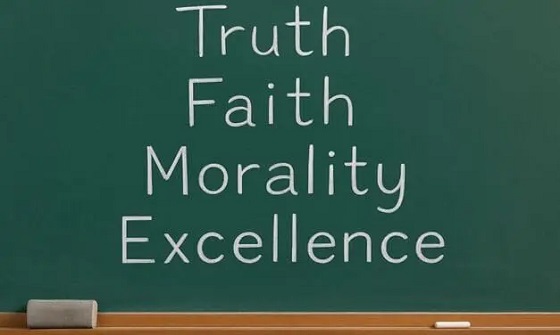
 Education1 day ago
Education1 day agoWhy more parents are turning to Christian schools
-
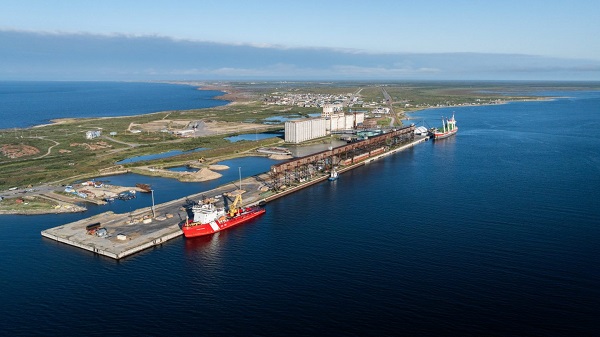
 Alberta1 day ago
Alberta1 day agoUpgrades at Port of Churchill spark ambitions for nation-building Arctic exports
-

 Alberta1 day ago
Alberta1 day agoOPEC+ is playing a dangerous game with oil
-
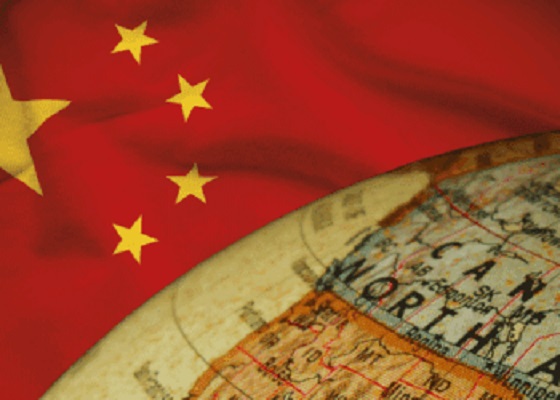
 Business1 day ago
Business1 day agoIs dirty Chinese money undermining Canada’s Arctic?
-

 COVID-191 day ago
COVID-191 day agoJapan disposes $1.6 billion worth of COVID drugs nobody used
-
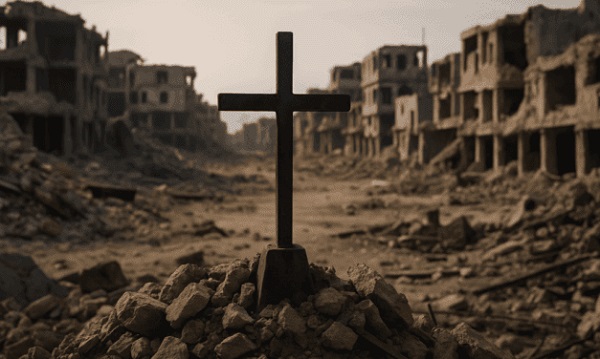
 conflict1 day ago
conflict1 day agoOne of the world’s oldest Christian Communities is dying in Syria. Will the West stay silent?
-

 COVID-191 day ago
COVID-191 day agoWATCH: Big Pharma scientist admits COVID shot not ‘safe and effective’ to O’Keefe journalist
-

 Bruce Dowbiggin1 day ago
Bruce Dowbiggin1 day agoHow Did PEI Become A Forward Branch Plant For Xi’s China?






